- Sandra Banks appointed interim Vice-President, Advancement
- Yucatan climate past informs the global climate present
- Health professor elected Fellow of the Canadian Academy of Health Sciences
- Test of the campus emergency communication system September 23
- Alumni podcast explores how professional decisions can spawn personal development
Editor:
Brandon Sweet
University Communications
bulletin@uwaterloo.ca
Sandra Banks appointed interim Vice-President, Advancement
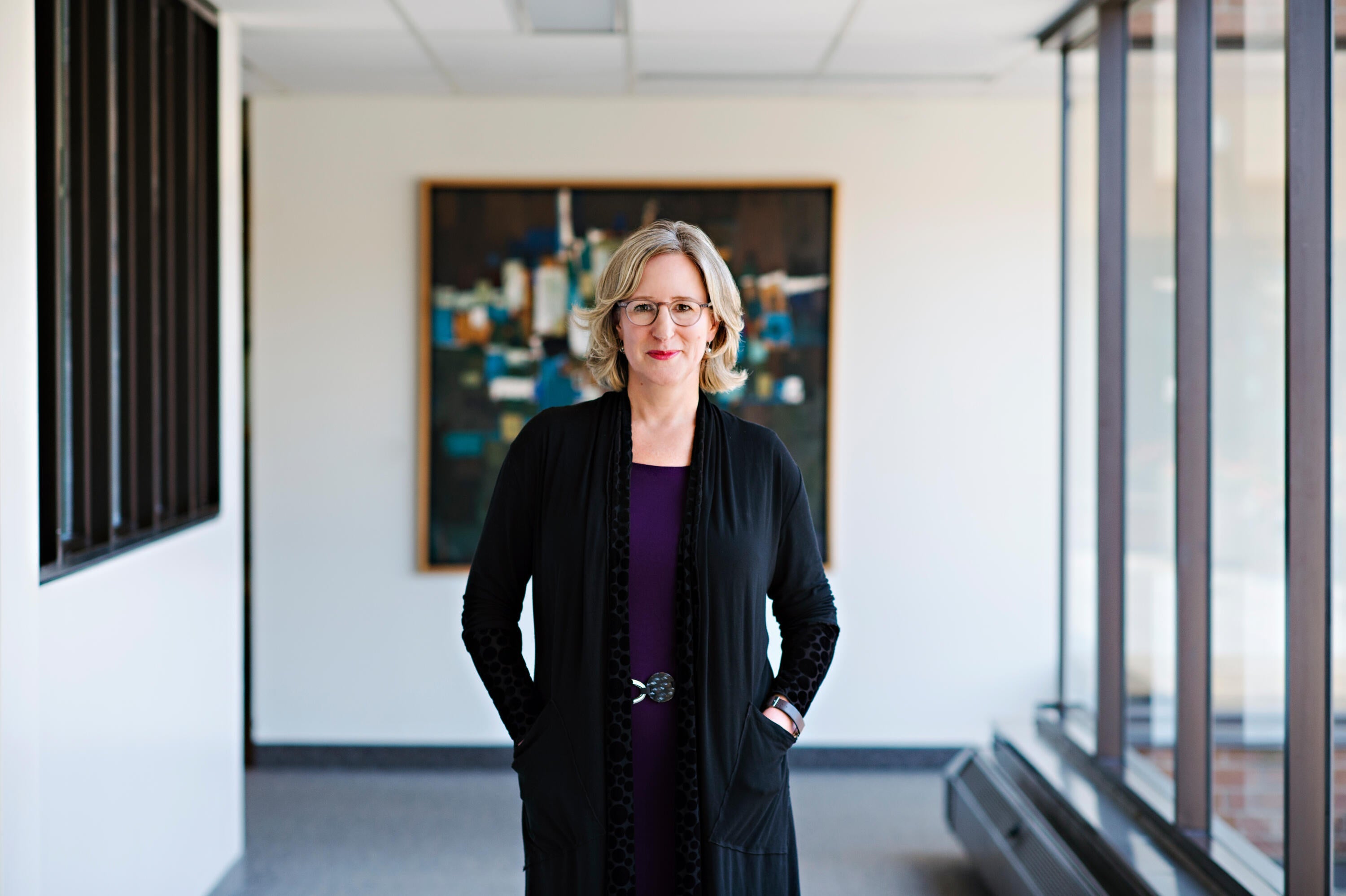
"I’m pleased to announce the appointment of Sandra Banks as Interim Vice-President, Advancement as of November 1, 2021," wrote President Vivek Goel in a memo sent to the University's Executive Council on Wednesday. "Sandra will take on these responsibilities in addition to those of Vice-President, University Relations until a permanent appointment is made."
As previously announced in the Daily Bulletin, Joanne Shoveller will be taking on a new role at the new International Business University, and will begin serving as president and vice-chancellor of IBU on January 1, 2022. Her last day at the University will be October 31. The search for her successor is underway.
Since 2015, Sandra Banks has led the University’s broad range of marketing, communications, government relations and community relations initiatives as Vice-President, University Relations. In 2019, Banks was reappointed to a second five-year term that runs until March 31, 2025.
"Sandra will be working with Joanne over the next several weeks to support this transition," President Goel writes. "I look forward to Sandra’s leadership and stewardship of the Advancement portfolio during this time and thank her for taking on this role."
Yucatan climate past informs the global climate present
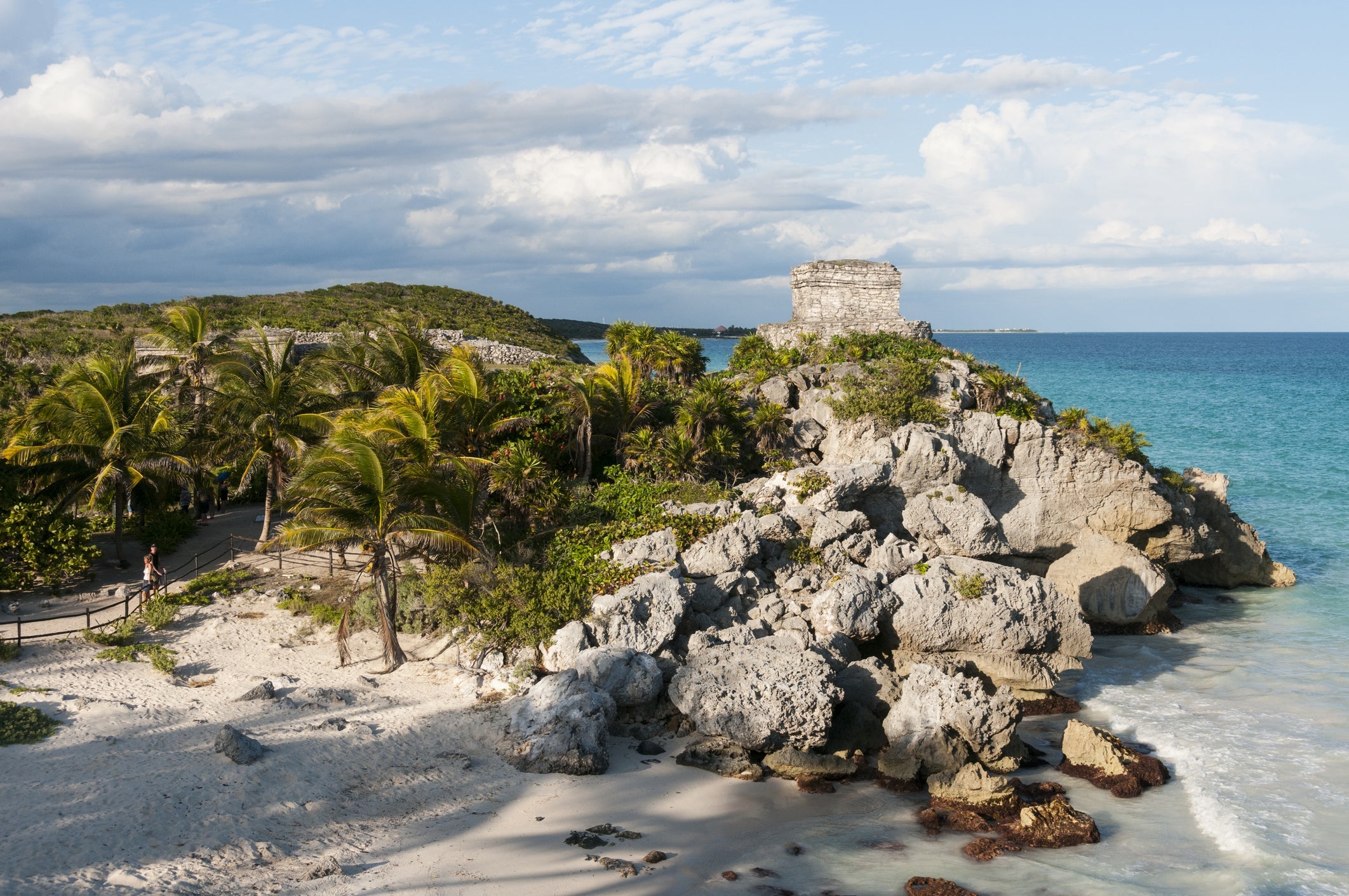
New research shows changes in tides and hurricane activity played a part in upending the Maya civilization centuries ago.
Changes to the water table throughout the Yucatan Peninsula impacted the Maya and now offer lessons on the effects of present-day climate change, researchers say.
“Big parts of the Yucatan Peninsula sit on rock formations made of limestone, with fissures and caves throughout,” said Aaron Coutino, a recent PhD graduate in applied mathematics at the University of Waterloo. “Rainwater and runoff accumulate in the cave formations and underground rivers, and that’s where much of the freshwater is on the Yucatan.”
“If you have changes in sea level or tidal activity, then what happens in those fissure zones is a mixing between the fresh water on the surface and the salty water that intrudes from the ocean underneath.”
The researchers show that fluctuations in Maya population and settlement patterns were impacted by access to fresh water. Long before the arrival of Europeans and the eventual destruction of the Maya civilization, the archaeological record shows cycles of internal disruption.
“Sometimes things in Maya cities were good, and sometimes people seem to disperse out into the countryside,” said Marek Stastna, a professor of applied mathematics at the University of Waterloo and a co-author on the study.
“There’s a variety of theories in the archeological community as to why. This research suggests it was to do with regular access to freshwater. The water stops being good for drinking and even stops being useful for irrigation. When you can’t irrigate your crops, you can’t have a city of 40,000, like some of the Maya cities were.”
The researchers placed sensors in bodies of water throughout the Yucatan to gather data. They found daily fluctuations of water levels and salination that show ocean tides impact even far-inland lakes. Their work offers new insights for archaeologists and climate historians, but also for present-day climatologists.
The researchers say the study informs how the contemporary world can think about the different ways climate change expresses itself. The Yucatan, with its unique water table, is vulnerable in particular ways. Other regions will have their specific vulnerabilities.
“Right now, you see how climate change expresses itself in places like British Columbia, with these huge forest fires. And in the Yucatan, climate change expresses itself through the underground water table. If you’re in Acadia, maybe the bigger concern is coastal erosion, but in the Yucatan change can manifest inland,” Stastna said.
“People shouldn’t be thinking about whether climate change is happening, but how it expresses itself in different places.”
The study, Inland tidal oscillations within the Yucatan Peninsula, authored by Coutino, Stastna, Chelsi McNeill-Jewer and Eduard Reinhardt, was recently published in the journal Geophysical Research Letters.
Health professor elected Fellow of the Canadian Academy of Health Sciences
This article was originally published on the Faculty of Health website.
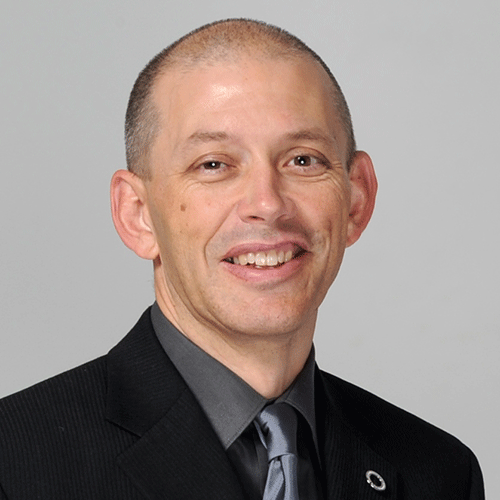
Jack P. Callaghan, a professor in the Department of Kinesiology and Health Sciences, has been elected as a 2021 Fellow in the Canadian Academy of Health Sciences (CAHS). The Academy brings together and recognizes top-ranked health and biomedical scientists and scholars across Canada to create positive change on the urgent health concerns of Canadians.
Election to Fellowship in the Academy is considered one of the highest honours for scholars in the Canadian health sciences communities. Fellows elected to the Academy are health and biomedical science leaders who have achieved national and international peer recognition for their contributions to the health sciences and demonstrate a history of exceptional accomplishment and impact.
The citation reads, “Dr. Jack Callaghan is a biomechanics professor and Canada Research Chair in Spine Biomechanics and Injury Prevention. He works with industry and clinical groups translating his internationally renowned chronic injury prevention research into product design, practice guidelines and prevention standards. As director of the Centre of Research Expertise for the Prevention of Musculoskeletal Disorders (CRE-MSD), he leads a network of 70 scientists and practitioners and produced a provincial guideline for the prevention of musculoskeletal injury. Callaghan is a Canadian Certified Professional Ergonomist and has been named a fellow and Career Awardee of the Canadian Society for Biomechanics.”
Callaghan is one of 74 newly elected CAHS Fellows from across the country. They are chosen from all disciplines in Canadian universities, health-care and research institutes.
Test of the campus emergency communication system September 23
A message from Information Systems & Technology.
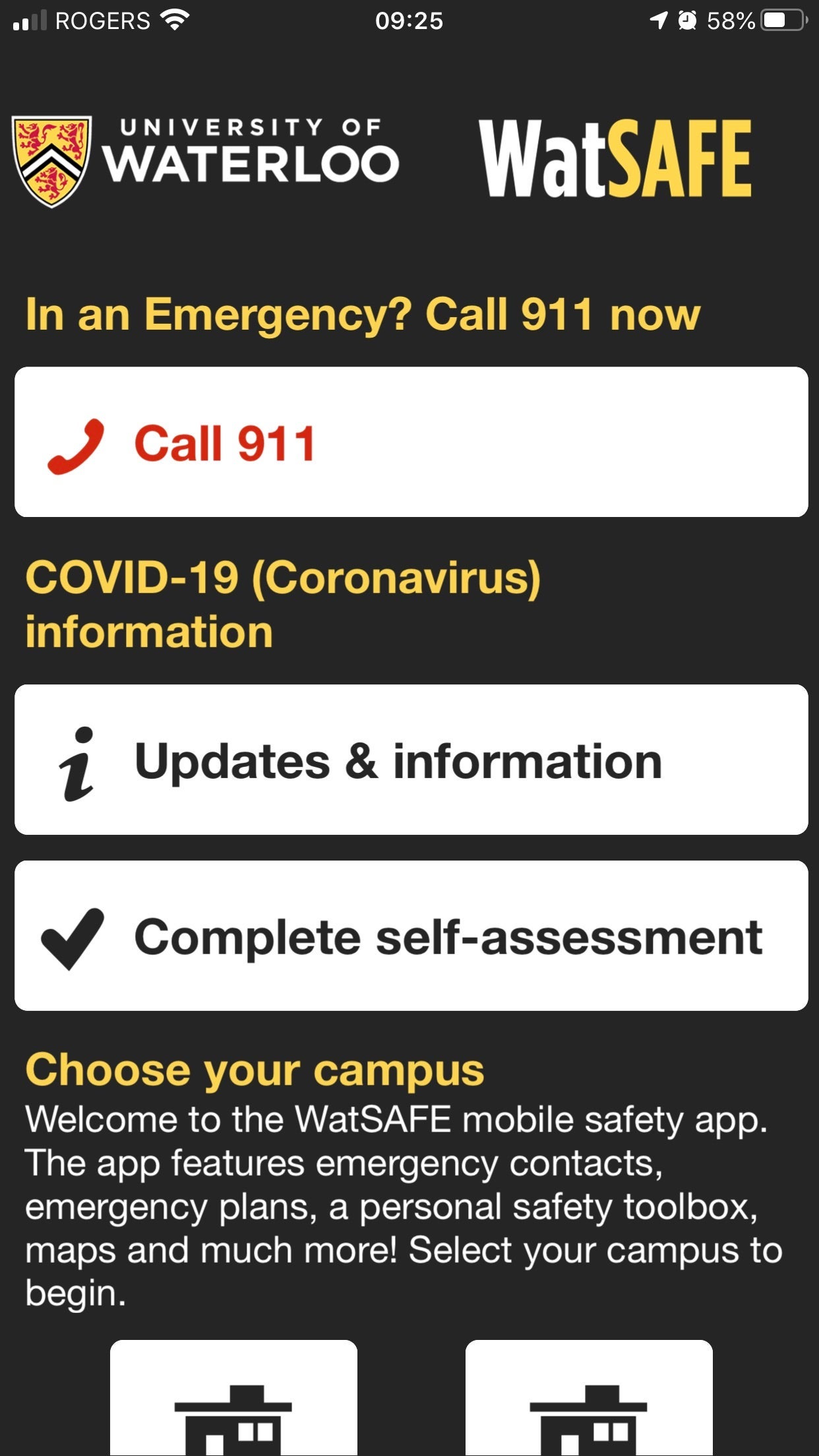 A test of the University’s emergencycommunication system is scheduled for Thursday, September 23 at 11:00 a.m. Test activation and deactivation messages will be sent using the following channels:
A test of the University’s emergencycommunication system is scheduled for Thursday, September 23 at 11:00 a.m. Test activation and deactivation messages will be sent using the following channels:
- Tweets to @UWaterloo and @WatSAFEapp
- WatSAFE mobile app
- The ‘WatSAFE Desktop Notification’ on-screen pop-up for desktops and laptops
- Portal alerts and push notifications
In the event of a real emergencyduring this test, please contact Police Services at 519-888-4911, or ext. 22222.
Be sure to install the WatSAFE app on your device and WatSAFE Desktop Notification tool on your desktop/laptop to receive this test message, and more importantly, to stay informed of campusemergency situations. Visit the WatSAFE website for more details.
Alumni podcast explores how professional decisions can spawn personal development
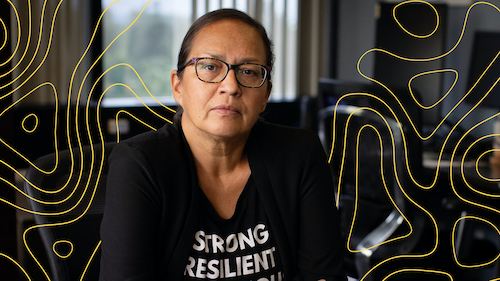
A message from the Office of Advancement.
Our careers don't exist in a vacuum — they're an integral part of our personal development. Nel Wieman's (BSc '88, MSc '91) career journey is an amazing example of that fact. In the latest episode of Uncharted: Warriors in the World, Nel explains how her career as a health care provider brought her personal fulfillment and encouraged self-discovery.
She began at Waterloo as a kinesiology student, fascinated with biomechanics. Then, she became Canada's first female Indigenous psychiatrist. And today, she's a public health official at the First Nations Health Authority in British Colombia. Nel joins the podcast to tell her career story and share the personal revelations she uncovered with each new step.
Listen to Nel's storyon Spotify, Apple Podcasts, Google Podcasts or Soundcloud.
Link of the day
When and Where to get support
Students can visit the Student Success Office online for supports including academic development, international student resources, leadership development, exchange and study abroad, and opportunities to get involved.
Instructors can visit the Keep Learning website to get support on adapting their teaching and learning plans for an online environment.
Course templates are available within your course in LEARN to help you build and edit your content and assignment pages quickly.
The following workshops, webinars, and events are offered by the KL team (CTE, CEL, ITMS, LIB):
- Independent Remote Course Design Essentials, self-directed, continuous self-enrollment course in LEARN.
- Independent Blended Course Design (iBlend), self-directed, ongoing
-
Akindi Training for In-Person Assessments, Thursday, September 16, 1:00 p.m.
-
SoTL Miniseries (CTE7012), begins on Thursday, September 16, 2:00 p.m.
Employees can access resources to help them work remotely, including managing University records and privacy of personal information. Here are some tips for staying healthy while working from home.
Stay informed about COVID cases on campus by consulting the COVID case tracker.
The Writing and Communication Centre has virtual services and programs to help undergrads, grad students, postdocs and faculty members with academic writing.
- Meet with writing advisors in one-to-one appointments to brainstorm, draft, revise, and polish. No time for an appointment? Try email tutoring for undergrads.
- Beat isolation and make writing progress at weekly Virtual Writing Cafés for grad students and faculty or PJ-Friendly Writing Groups for Undergrads.
- Take an online workshop or apply to our popular Dissertation Boot Camp program.
- Faculty can request custom in-class workshops for their courses, or the WCC can facilitate any existing workshops for student groups.
Co-op students can get help finding a job and find supports to successfully work remotely, develop new skills, access wellness and career information, and contact a co-op or career advisor.
The Centre for Career Action (CCA) will be expanding some in-person services for fall 2021. The Tatham Centre will be open with front-desk support beginning September 7, with limited in-person appointments and co-op consults beginning September 20. All services will continue to be offered virtually this term. Book an appointment online or visit our Live Chat to connect with our Client Support Team. The CCA is here to help.
If you feel overwhelmed or anxious and need to talk to somebody, please contact the University’s Campus Wellness services, either Health Services or Counselling Services. You can also contact the University's Centre for Mental Health Research and Treatment. Good2Talk is a post-secondary student helpline available to all students.
While the Library continues to focus on digital resources and consultations, our spaces are open for the fall term. Dana Porter Library is open Monday to Friday, 9 a.m. to 5 p.m., and Davis Centre Library is open Monday to Friday, 9 a.m. to 11 p.m., and Saturday and Sunday, 11 a.m. to 5 p.m. for drop-in individual study space, bookable individual study rooms, drop-in access to computers and printers, book pick-up services and IST Help Desk support. Special Collections & Archives and the Geospatial Centre will be accessible by appointment. Library staff are available for questions via Ask us. Full details on current services and hours are available on the Library’s COVID-19 Update webpage.
The Faculty Association of the University of Waterloo (FAUW) continues to advocate for its members. Check out the FAUW blog for more information.
The University of Waterloo Staff Association (UWSA) continues to advocate for its members. Check out the UWSA blog for more information.
The Sexual Violence Prevention and Response Office (SVPRO) supports all members of the University of Waterloo campus community who have experienced, or been impacted, by sexual violence. This includes all students, staff, faculty and visitors on the main campus, the satellite campuses, and at the affiliated and federated Waterloo Institutes and Colleges. For support, email: svpro@uwaterloo.ca or visit the SVPRO website.
The Indigenous Initiatives Office is a central hub that provides guidance, support, and resources to all Indigenous and non-Indigenous campus community members and oversees the university Indigenization strategy.
The Waterloo Indigenous Student Centre, based at St. Paul’s University College, provides support and resources for Indigenous students, and educational outreach programs for the broader community, including lectures, and events.
WUSA supports for students:
Peer support - MATES, Glow Centre, RAISE, Women’s Centre - Visit https://wusa.ca/peersupport to book an appointment either in person or online for the Fall term!
Food Support Service food hampers are currently available from the Turnkey Desk 24/7 in the Student Life Centre. Drop off locations are also open again in SLC, DC, DP, SCH and all residences.
Bike Centre – Open for drop in and Rentals
Co-op Connection all available online. Check https://wusa.ca for more details.
Centre for Academic Policy Support - CAPS is here to assist Waterloo undergraduates throughout their experience in navigating academic policy in the instances of filing petitions, grievances and appeals. Please contact them at caps@wusa.ca. More information is available.
WUSA Student Legal Protection Program- Seeking legal counsel can be intimidating, especially if it’s your first time facing a legal issue. The legal assistance helpline provides quick access to legal advice in any area of law, including criminal. Just call 1-833-202-4571.
Empower Me is a confidential mental health and wellness service that connects students with qualified counsellors 24/7. They can be reached at 1-833-628-5589.
When and Where (but mostly when)
Healthy Warriors at Home(Online Fitness)
Warrior Rec Registration. Starts September 7. A wide range of programs are being offered this term. Intramural deadline: September 13, 11:00 a.m. Instructional deadline: September 19, 11:59 p.m. Register online.
Warriors vs. Laurier Blood Donation Battle. Join your fellow Warriors, donate blood and help us win the Blood Battle against Laurier for a second year in a row. Set up a profile or add the PFL code: UNIV960995 to your account if you have a blood.ca account already. Questions? Contact WarriorsInfo@uwaterloo.ca.
Drop-in to Warrior Virtual Study Halls on Wednesdays from 5:30 p.m. to 7:00 p.m. Come together in this virtual space to set goals and work independently or in groups each week.
Renison English Language Institute continues to offer virtual events and workshops to help students practice their English language skills.
WUSA Welcome Week, Monday, September 13 to Friday, September 17.
Women in Mathematics (WiM) virtual welcome event, “What I wish I knew then…” Thursday, September 16, 4:00 p.m. to 5:00 p.m. RSVP today.
Take Back the Night, Thursday, September 16, 6:00 p.m. to 8:00 p.m.
IT Seminar: CALMS – Computer Asset Lifecycle Management System, Friday September 17, 9:00 a.m. to 9:45 a.m. Join online.
Knowledge Integration seminar: “Knowledge Integration and public service for the digital age”, featuring speakers Skaidra Puodziunas and Sukhi Chuhan, Ontario Digital Service, Government of Ontario, Friday, September 17, 1:00 p.m.
Warriors Football Home Opener. Saturday, September 18, 6:00 p.m., Warrior Field. Minor League Day, Residence and Employees Day, The Alliance “We Are One” Game. Tickets available online.
University Senate meeting, Monday, September 20, 3:30 p.m.
Anti-racism book club, White Fragility: Why It’s So Hard for White People to Talk About Racism by Robin DiAngelo and Michael Eric Dyson (2018), Tuesday, September 21, 12:00 noon to 1:00 p.m.
GEDI Exchange Webinar - A 30 Minute Exchange with HueX and Tim Hortons, Tuesday, September 21, 1:00 p.m. Join this discussion with HueX and Tim Hortons as they discuss improving the customer experience with technology by bringing voice-enabled conversational AI to the drive-through.
WaterTalk: What are the Priority Research Needs for Environmental Quality and Environmental Public Health Practice? presented by Bryan Brooks, Thursday, September 23, 10:00 a.m.